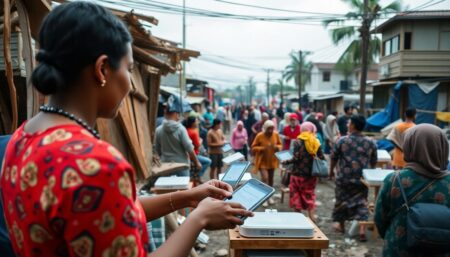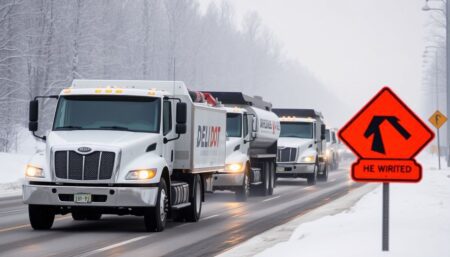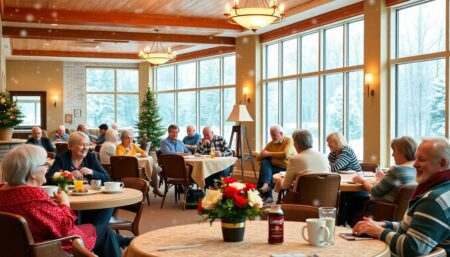In the ever-evolving landscape of preparedness and self-reliance, one concept stands out as a beacon of hope and resilience: the prepper community. This network of like-minded individuals, united by their shared passion for survival skills and mutual aid, is more than just a group of people; it’s a lifeline in times of crisis. But how did we get here? And why is networking and skill-sharing within this community so crucial? Let’s delve into the world of prepping and explore the importance of fostering a robust prepper community.
Did you know that according to a 2019 YouGov survey, nearly half of Americans (46%) have taken steps to prepare for an emergency? This statistic underscores the growing awareness and importance of preparedness in our society. However, while many people may have a stash of supplies or know a few survival skills, the real power lies in community. This is where the prepper community comes into play.
Agree with me when I say that no one person can know everything or have every resource. Even the most seasoned preppers have gaps in their knowledge and supplies. This is where networking and skill-sharing become invaluable. By connecting with others in the prepper community, we can fill these gaps, learn new skills, and gain access to resources we might not have otherwise. It’s a win-win situation that not only benefits the individual but also strengthens the community as a whole.
Now, you might be wondering, ‘How do I start building a prepper community?’ or ‘What kind of skills should I focus on sharing?’ These are excellent questions, and they’re exactly what we’ll be exploring in this article. We’ll dive into the art of networking, the importance of mutual aid, and the skills that are most valuable to share within a prepper community. We’ll also look at real-life examples of successful prepper communities and discuss how you can apply their strategies to your own community-building efforts.
By the end of this article, you’ll have a clear understanding of why building a prepper community is so important, and you’ll have practical steps to start your own networking and skill-sharing initiatives. You’ll learn how to foster a sense of camaraderie and mutual respect, and how to create a community that’s not just prepared for emergencies, but also enriches the lives of its members in everyday situations. So, are you ready to roll up your sleeves and start building a prepper community? Let’s get started!
Fostering Resilience: Building a Prepper Community through Networking and Skill-Sharing
In the ever-evolving landscape of modern life, the concept of resilience has taken on a new significance. As individuals and communities alike face an array of potential challenges, from natural disasters to economic uncertainties, the need for preparedness has never been more apparent. This is where the idea of ‘prepping’ comes into play, not as a doomsday scenario, but as a practical approach to building a robust and adaptable lifestyle. Fostering resilience, however, is not a solo endeavor. It’s in the spirit of community that we find the most effective means of preparedness. This is where networking and skill-sharing come into play, creating a prepper community that is greater than the sum of its parts. Imagine a vibrant network of individuals, each bringing their unique skills and knowledge to the table. From gardening and first aid to wilderness survival and DIY projects, these shared skills create a safety net that can weather any storm. It’s a testament to the power of community, where everyone has something to teach and something to learn. By fostering this spirit of cooperation and mutual respect, we’re not just building a prepper community, we’re building a resilient society. After all, when we help each other, we’re not just preparing for the worst, we’re investing in the best
- a future where everyone has the tools and knowledge they need to thrive.

The Power of Community
In the realm of preparedness and survival situations, the power of community cannot be overstated. It’s not just about having the right gear or knowing the best survival techniques; it’s about the people around you, the bonds you forge, and the collective wisdom you tap into. A prepper community is more than just a group of like-minded individuals; it’s a lifeline, a support system that can make the difference between merely surviving and thriving.
Emotional support is the first line of defense in any challenging situation. A prepper community provides a safe space to express fears, share hopes, and find comfort in the knowledge that you’re not alone. It’s a place where you can vent, strategize, and recharge, knowing that others have your back. This emotional support is not just a luxury; it’s a necessity that can prevent burnout and maintain morale during trying times.
Shared resources are another significant advantage of a prepper community. By pooling resources, a community can ensure that everyone has access to essential supplies, tools, and knowledge. This could mean sharing food and water, but it also extends to skills and information. For instance, one community member might be an expert in first aid, another in gardening, and a third in mechanics. By sharing these skills, the community becomes a wealth of knowledge that benefits everyone.
Collective problem-solving is perhaps the most powerful aspect of a prepper community. When faced with a challenge, a community can brainstorm solutions, weigh pros and cons, and make decisions that benefit everyone. This collective approach can lead to innovative solutions that an individual might never think of. Moreover, it ensures that decisions are made democratically, fostering a sense of ownership and responsibility among community members.
In essence, a prepper community is not just a group of people who prepare for disasters; it’s a group of people who prepare together. And that ‘together’ makes all the difference. It’s the power of community, the power of unity, and the power of shared purpose that can turn a group of individuals into a resilient, adaptable force that’s ready to face whatever comes their way.

Identifying Your Community
Embarking on the journey to identify potential prepper communities in your area can be an exciting and rewarding experience. It’s an opportunity to connect with like-minded individuals who share your passion for self-sufficiency, resilience, and preparedness. Let’s dive into some strategies to help you find these communities.
Firstly, the digital world offers a wealth of opportunities to connect with potential prepper communities. Online forums and social media groups are thriving hubs of information and camaraderie. Websites like Reddit (r/preppers, r/survivalism), Survivalist Boards, and PrepperNet offer platforms for discussions, advice, and resource sharing. Joining these platforms allows you to gauge the local interest and activity. Remember to always maintain your privacy and safety when engaging online.
Next, consider exploring local meetups and events. These can be a fantastic way to meet potential community members face-to-face. Websites like Meetup.com often list gatherings focused on survival skills, homesteading, and self-reliance. Local libraries, community centers, and outdoor stores may also host workshops or classes that could attract like-minded individuals. Don’t hesitate to reach out to organizers to inquire about their events.
Lastly, keep an eye out for signs of like-minded individuals in your area. This could be as simple as spotting a well-stocked garden, a solar panel, or a rainwater harvesting system. It might also involve noticing local businesses that cater to preppers, such as gun stores, survival gear shops, or bulk food suppliers. These could indicate a higher concentration of preppers in the area. Additionally, local emergency preparedness fairs and disaster drills can be excellent opportunities to connect with potential community members.
In conclusion, identifying your prepper community involves a combination of online exploration, local event attendance, and keen observation. Each step is an opportunity to learn, grow, and connect with others who share your passion for preparedness. So, grab your compass and let’s start navigating towards your community!

Building Trust and Rapport
In the realm of prepping, where communities often rely on each other for survival, trust is not just a virtue, it’s a necessity. It’s the glue that binds individuals together, fostering a sense of security and mutual reliance. Without trust, a prepper community is like a house of cards, ready to collapse at the slightest provocation. Trust enables us to share resources, skills, and knowledge openly, enhancing our collective resilience and preparedness.
Building trust, however, is not an overnight process. It’s a journey that requires patience, consistency, and genuine effort. Here are some steps to help you build rapport and establish trust with new members:
- Be Genuine and Authentic: Trust is built on honesty and authenticity. Be yourself, and let your actions speak for your intentions. People can sense insincerity, so it’s crucial to be genuine in your interactions.
- Active Listening: Show genuine interest in new members. Listen to their stories, their fears, and their hopes. This not only helps you understand their perspective but also makes them feel valued and respected.
- Share Your Knowledge: Prepping often involves sharing knowledge about survival skills, emergency procedures, and resource management. By sharing your expertise, you demonstrate your value to the community and build trust.
- Follow Through on Promises: Trust is built on reliability. If you promise to do something, make sure you follow through. This could be as simple as showing up on time for a meeting or as significant as delivering supplies as promised.
- Be Consistent: Trust is not built in a day, but it can be lost in a moment. Consistency in your behavior and actions over time is key to building and maintaining trust.
Remember, building trust is a two-way street. While you’re working to build trust with new members, also be open to earning their trust. It’s a process that requires time, patience, and a genuine commitment to the community.

The Art of Networking
Networking, often perceived as a mere business buzzword, is in fact a vital lifeline that connects us all, especially within the prepper community. It’s not just about exchanging business cards or LinkedIn connections; it’s about forging relationships that can lead to shared resources and knowledge, making us all better prepared for the challenges life might throw at us.
Consider the prepper community, a vast network of individuals dedicated to self-reliance and preparedness. Within this community, networking takes on a whole new significance. It’s about connecting with like-minded individuals who can offer insights into everything from gardening and food preservation to first aid and self-defense. By networking, we can learn from each other’s experiences, share resources, and even barter skills.
For instance, imagine a prepper who’s an expert in hydroponics but struggles with basic first aid. Through networking, they could connect with someone who’s a medical professional but lacks knowledge in hydroponics. They could then exchange knowledge and skills, both becoming better prepared in the process. This is not just a hypothetical scenario; it’s a reality in many prepper communities.
Networking also extends beyond the prepper community. It’s about connecting with local farmers who can provide fresh produce, or with local emergency services to understand their protocols better. It’s about joining clubs and groups that align with your interests, be it hiking, fishing, or even survival skills. Each connection is a step towards a more robust network, a more prepared you.
So, how does one start networking? Here are a few steps:
- Identify your interests and skills. What are you good at? What do you want to learn?
- Join local clubs, groups, or online forums that align with your interests. Websites like Meetup.com can be a great starting point.
- Attend events and meetups. Don’t be afraid to strike up a conversation. Everyone there has a shared interest, so you already have something in common.
- Be open and honest. Share your knowledge and experiences, and be willing to learn from others.
- Follow up. After meeting someone, send them a message or connect with them on social media. Keep the conversation going.
Remember, networking is not about what you can gain, but what you can give and learn. It’s about building relationships, fostering a sense of community, and ultimately, becoming better prepared, together.

Skill-Sharing: The Backbone of Community
In the dynamic tapestry of a prepper community, one thread that weaves together its members, fostering resilience and self-sufficiency, is the concept of skill-sharing. Skill-sharing, at its core, is the practice of exchanging knowledge and abilities among individuals, enabling everyone to learn, grow, and contribute to the collective well-being. This concept is not merely beneficial; it’s the backbone of a prepper community, ensuring that everyone is equipped with a diverse skill set to navigate various challenges.
The importance of skill-sharing lies in its ability to create a network of interdependent individuals who can rely on each other’s expertise. For instance, one person might be adept at gardening, another at first aid, and yet another at carpentry. By sharing these skills, they create a support system where everyone has access to a wide range of expertise.
Consider the following skills that can be shared in a prepper community:
- Survival skills: Fire-making, shelter building, navigation, and foraging.
- Food preservation: Canning, dehydrating, fermenting, and smoking.
- Homesteading: Gardening, animal husbandry, and beekeeping.
- DIY and repair: Carpentry, plumbing, electrical work, and sewing.
- Medical: First aid, herbalism, and basic nursing.
- Self-defense: Martial arts, firearm safety, and strategic planning.
- Technology: Electronics repair, coding, and renewable energy systems.
Organizing skill-sharing events is a fantastic way to facilitate this exchange of knowledge. Here’s a simple step-by-step guide:
- Identify the skills and interests of your community members.
- Create a list of potential teachers and topics.
- Set a date, time, and location for the event. Consider rotating these to accommodate different schedules and locations.
- Promote the event through community channels, such as newsletters, social media groups, or bulletin boards.
- Gather necessary materials and tools for the classes.
- On the day of the event, ensure there’s a welcoming atmosphere that encourages learning and interaction.
- After the event, collect feedback to improve future skill-sharing events.
By fostering a culture of skill-sharing, a prepper community transforms into a vibrant, interconnected network where everyone has something valuable to contribute. This not only enhances individual capabilities but also strengthens the community as a whole, ensuring that no one is left behind when facing challenges.

Mutual Aid: A Community’s Safety Net
In the realm of preparedness, the concept of mutual aid stands as a beacon of community resilience and solidarity. Mutual aid, at its core, is a system of exchange and cooperation where individuals and groups within a community support each other in times of need, without any formalized system of payment or compensation. It’s a safety net woven with threads of trust, reciprocity, and shared responsibility.
In a prepper community, mutual aid can be implemented through various means, fostering a culture of interdependence and collective self-reliance. One of the first steps is to identify the skills, resources, and knowledge each member brings to the table. This could be anything from medical expertise to gardening prowess, or from a surplus of food to a knack for repairing electronics. By creating a directory of these assets, the community can establish a robust network of support.
When a crisis strikes, mutual aid can manifest in numerous ways. For instance, if a family’s water supply is compromised, they might turn to a neighbor with a rainwater harvesting system for assistance. In return, they could offer help with childcare or share their excess garden produce. This barter system of support not only addresses immediate needs but also strengthens bonds and fosters a sense of community.
Moreover, mutual aid groups can organize collective efforts to enhance the community’s overall resilience. This could involve collaborative projects like building community gardens, establishing a community pantry, or creating a rotating schedule for checking on elderly or disabled members during emergencies. These initiatives not only prepare the community for crises but also enhance everyday life.
In essence, mutual aid is more than just a safety net; it’s a web of support that catches us when we fall and lifts us up when we’re ready to stand again. It’s a testament to the power of community and the strength that comes from looking out for one another. In a prepper community, mutual aid is not just a nice idea; it’s a practical and powerful tool for building a resilient, interconnected, and caring society.

Overcoming Obstacles: Dealing with Naysayers and Skeptics
Navigating the path to success often involves encountering naysayers and skeptics, individuals who may doubt your ideas, question your capabilities, or even discourage you from pursuing your dreams. While their opinions can be disheartening, it’s crucial to remember that everyone is entitled to their perspective, and it’s often their own fears or insecurities that color their views. The first step in dealing with such individuals is to maintain a calm and respectful demeanor.
Instead of engaging in arguments or trying to change their minds, focus on understanding their concerns. Active listening can help you identify the root cause of their skepticism, and it also demonstrates that you value their input.
Once you’ve understood their perspective, you can choose to address their concerns directly. This doesn’t mean you have to agree with them, but rather, explain your stance in a clear and concise manner. Use facts and data to support your position, and be open to feedback that might help you refine your approach.
If the naysayer is someone you interact with regularly, consider setting boundaries. It’s okay to politely decline conversations that consistently leave you feeling drained or disheartened. Remember, you don’t have to engage with every opinion, especially if it’s not constructive.
Lastly, don’t let their skepticism deter you from your goals. Instead, use it as fuel to drive your ambition. Every ‘no’ brings you one step closer to a ‘yes’, and every doubt can be turned into an opportunity to prove yourself.
In essence, dealing with naysayers and skeptics is about maintaining your composure, understanding their perspective, addressing their concerns, setting boundaries, and using their skepticism to propel you forward. It’s a challenge, yes, but it’s also an opportunity to grow and strengthen your resolve.

Growing and Maintaining Your Community
Growing and maintaining a prepper community is a rewarding journey that ensures collective preparedness and fosters a sense of camaraderie. The key to a thriving community lies in consistent engagement, open communication, and shared learning experiences. Regular meetings serve as the backbone of this process, providing an opportunity for members to exchange ideas, share skills, and plan for potential challenges together.
To kickstart your community’s growth, consider the following steps:
- Identify your community’s purpose and values. Clearly defining your group’s mission helps attract like-minded individuals and sets a solid foundation for growth.
- Leverage online platforms to reach a wider audience. Utilize social media groups, forums, and local online communities to spread the word about your group and its activities.
- Host engaging events and workshops. Organize skill-sharing sessions, group outings, or community service projects to bring members together and attract new faces.
Regular meetings and events not only help grow your community but also play a crucial role in maintaining its strength and resilience. They provide a platform for open communication, allowing members to voice their concerns, share updates, and collaborate on projects.
To foster open communication, consider implementing the following strategies:
- Establish a welcoming and inclusive environment. Encourage active participation from all members, regardless of their experience level or background.
- Create a feedback loop. Regularly collect and address member feedback to ensure everyone feels valued and heard.
- Promote transparency and accountability. Keep members informed about the community’s progress, decisions, and any relevant developments.
By consistently implementing these strategies, you’ll cultivate a strong, resilient prepper community that is well-equipped to face challenges and support its members. Embrace the journey, and remember that every connection made and every skill shared brings your community one step closer to self-sufficiency and preparedness.

When Disaster Strikes: Community Response
When disaster strikes, the resilience of a community often hinges on the preparations made before the event and the collective response that follows. Prepper communities, known for their proactive approach to potential crises, are a testament to this. These communities, driven by a shared commitment to self-reliance and mutual aid, have shown remarkable success in responding to disasters.
The key to their effectiveness lies in their comprehensive preparation strategies. Firstly, they foster a culture of knowledge sharing. Workshops and training sessions on skills like first aid, fire safety, and emergency communication are common. This ensures that when disaster strikes, there are numerous individuals capable of providing immediate assistance.
Secondly, prepper communities invest in collective resources. These can range from shared emergency supplies to community-owned renewable energy sources. For instance, in the aftermath of Hurricane Maria, a prepper community in Puerto Rico was able to provide power to their neighborhood using a microgrid they had set up prior to the storm.
Thirdly, they maintain strong communication networks. These networks, often facilitated by ham radios or other emergency communication devices, allow for quick dissemination of critical information during crises. This was evident in the response to the 2011 Joplin tornado, where a prepper community used their communication network to coordinate rescue efforts and provide real-time updates to emergency services.
Lastly, prepper communities emphasize mutual aid and cooperation. This is not just about having supplies on hand, but also about being ready to support one another. In the event of a disaster, this can mean anything from providing temporary shelter to helping with cleanup efforts. For example, after the 2013 Colorado floods, prepper communities sprang into action, helping to rescue stranded residents and clear debris.
In conclusion, prepper communities offer a compelling model for disaster response. Their success is a testament to the power of preparation, knowledge, and collective action. By learning from their strategies, we can all be better equipped to face the challenges that disasters bring.
FAQ
What is a Prepper Community and why is it important?
How does survival networking differ from traditional networking?
What are some benefits of skill-sharing within a Prepper Community?
- Enhanced self-sufficiency: By learning new skills, community members can reduce their reliance on external systems and services.
- Strengthened community bonds: Sharing knowledge and skills fosters a sense of camaraderie and shared purpose.
- Improved problem-solving: A diverse range of skills allows the community to tackle a wider variety of challenges.
- Preservation of traditional skills: By passing down knowledge from one generation to the next, we can keep valuable skills alive.
How can I find or start a Prepper Community in my area?
- Use online platforms like Meetup, Facebook, or Reddit to search for local groups. Keywords like ‘prepper’, ‘survival’, ‘homesteading’, or ‘mutual aid’ can help narrow down your search.
- Attend local events, workshops, or fairs focused on preparedness, sustainability, or self-reliance. These can be great places to meet like-minded individuals.
- Start your own group by reaching out to neighbors, friends, or colleagues who share your interests. You can use social media, local bulletin boards, or word-of-mouth to spread the word.
What kind of skills are valuable in a Prepper Community?
- First aid and medical knowledge
- Gardening and farming
- Food preservation and cooking
- Carpentry and construction
- Electronics and repair
- Self-defense and security
- Communication and leadership
- Financial management and bartering
The most valuable skills are those that contribute to the community’s self-sufficiency and resilience.
How can I ensure the safety and privacy of my community?
- Vet new members: Before welcoming new members, consider conducting background checks or interviews to ensure they align with the community’s values and pose no threat.
- Establish clear guidelines: Create rules for communication, sharing of information, and behavior within the community. This helps manage expectations and maintain a safe environment.
- Use secure communication channels: Encourage the use of encrypted communication platforms to protect sensitive information.
- Regularly review and update safety protocols: As the community grows and evolves, so should its safety measures.
How can I maintain a positive and inclusive community culture?
- Encourage open communication: Foster an environment where members feel comfortable sharing their thoughts, ideas, and concerns.
- Promote diversity: Welcome members from all backgrounds, ages, and skill levels. Diversity brings a wealth of perspectives and experiences.
- Focus on mutual respect: Establish a culture where everyone treats each other with kindness, patience, and understanding.
- Celebrate successes: Regularly acknowledge and celebrate the community’s achievements to boost morale and encourage further collaboration.
How can I prepare my community for natural disasters?
- Conduct a risk assessment: Identify the most likely disasters in your area (e.g., earthquakes, hurricanes, wildfires) and assess your community’s vulnerability.
- Develop an emergency plan: Create a plan that includes evacuation routes, meeting points, and communication strategies. Ensure all members are familiar with the plan.
- Stockpile supplies: Encourage members to store essential supplies like water, food, medical supplies, and tools. Consider creating a community stockpile for shared resources.
- Train for specific disasters: Organize workshops or drills to practice responding to different types of disasters. This can help the community stay calm and act quickly in an emergency.
How can I maintain a Prepper Community during a long-term disaster or crisis?
- Stay informed: Keep up-to-date with news and developments to make informed decisions and plan accordingly.
- Prioritize mental health: Long-term crises can take a toll on mental health. Encourage open communication, provide emotional support, and consider organizing stress management activities.
- Adapt and innovate: As circumstances change, be prepared to adapt your strategies and innovate new solutions. Encourage members to share their ideas and problem-solving skills.
- Maintain a sense of normalcy: While it’s important to stay focused on the task at hand, also make time for fun, relaxation, and community-building activities to boost morale and maintain a sense of normalcy.









